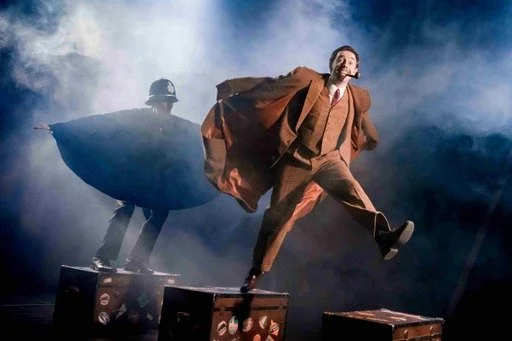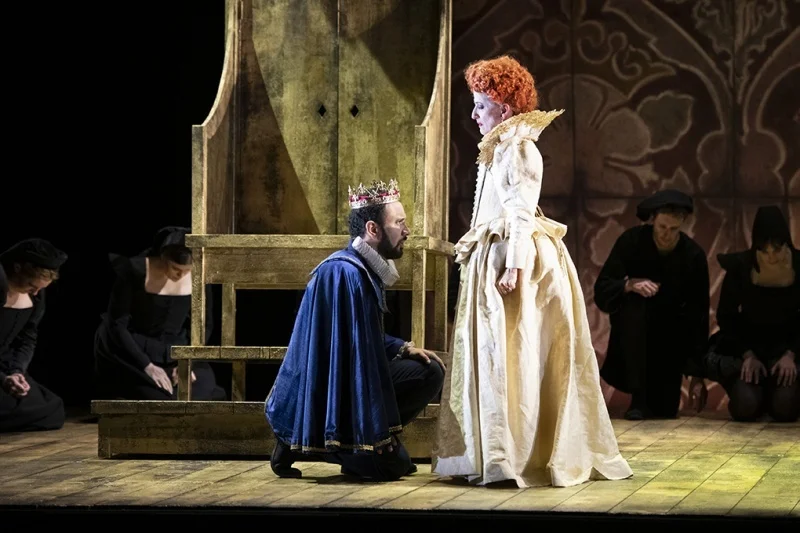THE RAKE'S PROGRESS - ARTS THEATRE
The devil is in the detail. There you have it, the whole plot of ‘The Rake’s Progress’. Stravinsky’s post war opera (his only full length one) charts the downfall of a silly young rake led astray by Not-That-Old Nick. The rake in progress is none other than Tom Rakewell, an 18th century dolt who gives up a potentially happy marriage to Anne Trulove (the clue is in the name). He does so at the behest of a persuasive stranger, Nick Shadow (clue:name) who comes out of dark blue to offer Tom untold riches and a life of boundless Riley. Well at least for a year and a day after which Tom will pay an infernal price. Sadly for Tom, he loves the headline hedonism without paying attention to the devilish detail.
If all this sounds grim, the opera is far from it. It is full of fun. Stravinsky’s score fizzes with Mozartian melodies albeit suffused with his trademark neo-classical, off-beat style with driving rhythms and exciting harmonies. Jack Sheen led a very fine band that gripped the tricky score from the exciting fanfare opening to the bitter-sweet coda at the end. The English Touring Opera (ETO) ensemble provided punchy support to the lead singers. Frederick Jones shone as the troubled Tom – his fine tenor had both quality and quantity. He was amply accompanied by Jerome Knox as Mephisto in disguise, a suitably sinister presence. Nazan Fikret sang the part of the jilted Anne with sweet power – her end-of-Act 1 aria with its Queen of the Night echoes still earworms into my brain though hours after safety curtain.
Though the stage often looked a touch overcrowded, Alex Gotch did a great job as Movement Director marshalling the singing troops through the many vivid scenes. We shift from village maypole, to London bordello, via gloomy madhouse and barking auction house. Costumes are striking; Maytime paganism, devilish imps and one’s eye was often drawn to the on-stage harpsichord player complete with appropriate peruke. It was a very lively show but one with a pleasing restraint allowing the words (mostly by WH Auden) to come through both on stage and reflected in the surtitles. Auden’s libretto is often arch, oddly obscure at times and thickly iced with classical allusion. That said the plot line is pretty clear and the obscurity of the language mattered little – even adds to the kookiness of the work. There were moments of true magic too including a diabolical disappearing act involving a Punch and Judy set.
With its rapid changes of pace, splendid curtain reveals, skewed 18th century visuals, fine singing and a colourful sense of fun, this ETO production is one to savour. With this show there is lots of joy in the detail.








